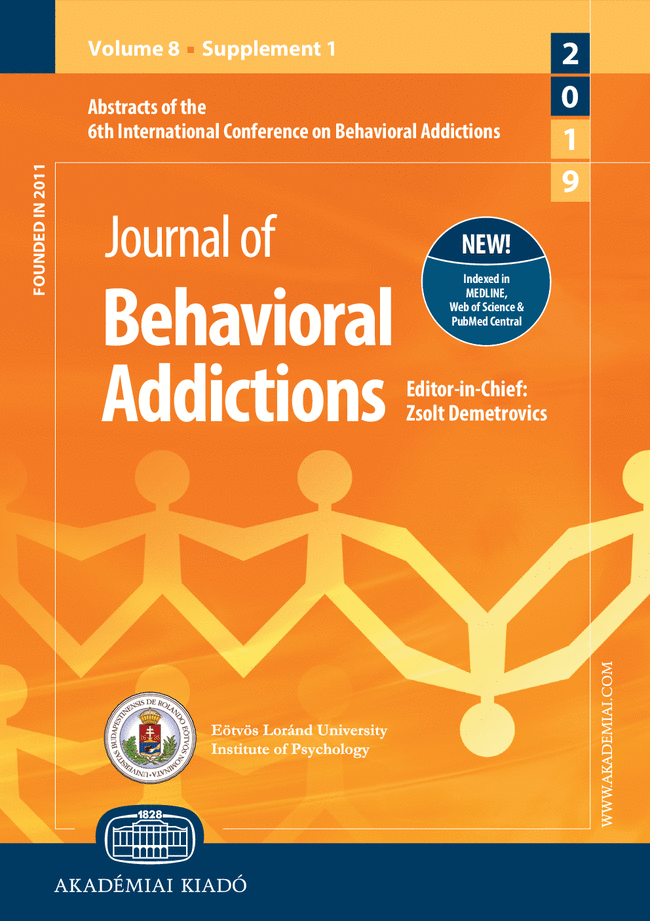Associations among the opioid receptor gene (OPRM1) A118G polymorphism, psychiatric symptoms, and quantitative EEG in Korean males with gambling disorder: A pilot study
Associations among the opioid receptor gene (OPRM1) A118G polymorphism, psychiatric symptoms, and quantitative EEG in Korean males with gambling disorder: A pilot study
Author(s): Kyoung Min Kim, Sam-Wook Choi, Dohyun Kim, Jaewon Lee, Jun Won KimSubject(s): Behaviorism
Published by: Akadémiai Kiadó
Keywords: gambling disorder; μ-opioid receptors; A118G polymorphism; quantitative electroencephalography
Summary/Abstract: Background and aims. A single nucleotide polymorphism of A118G (SNP; rs1799971) in the opioid receptor μ-1 (OPRM1) gene is a missense variant that influences the affinity of μ-opioid receptors. This study aimed to investigate the associations among the A118G polymorphism in the OPRM1 gene, psychiatric symptoms, and quantitative electroencephalography (qEEG) findings in patients with gambling disorder. Methods. Fifty-five male patients with gambling disorder aged between 18 and 65 years old participated in the study. The A118G polymorphism was genotyped into the AA, GA, and GG groups by the polymerase chain reaction/restriction fragment length polymorphism method. Resting-state qEEG was recorded with the eyes closed, and the absolute power of the delta (1–4 Hz), theta (4–8 Hz), alpha (8–12 Hz), and beta (12–30 Hz) frequency bands was analyzed. Psychiatric symptoms, including depression, anxiety, impulsivity and severity of gambling, were assessed by a self-rating scale. Results.There were no significant differences in psychiatric symptoms among the three genotype groups (AA, GA, and GG). However, the frequency band power of qEEG showed significant differences among the three genotype groups. The absolute power of the beta and theta bands in the frontal lobe was higher in G allele carriers. Discussion and conclusion. Based on the findings of this study, the polymorphism in the OPRM1 gene might affect the neurophysiological process in patients with gambling disorder.
Journal: Journal of Behavioral Addictions
- Issue Year: 8/2019
- Issue No: 3
- Page Range: 463-470
- Page Count: 8
- Language: English

